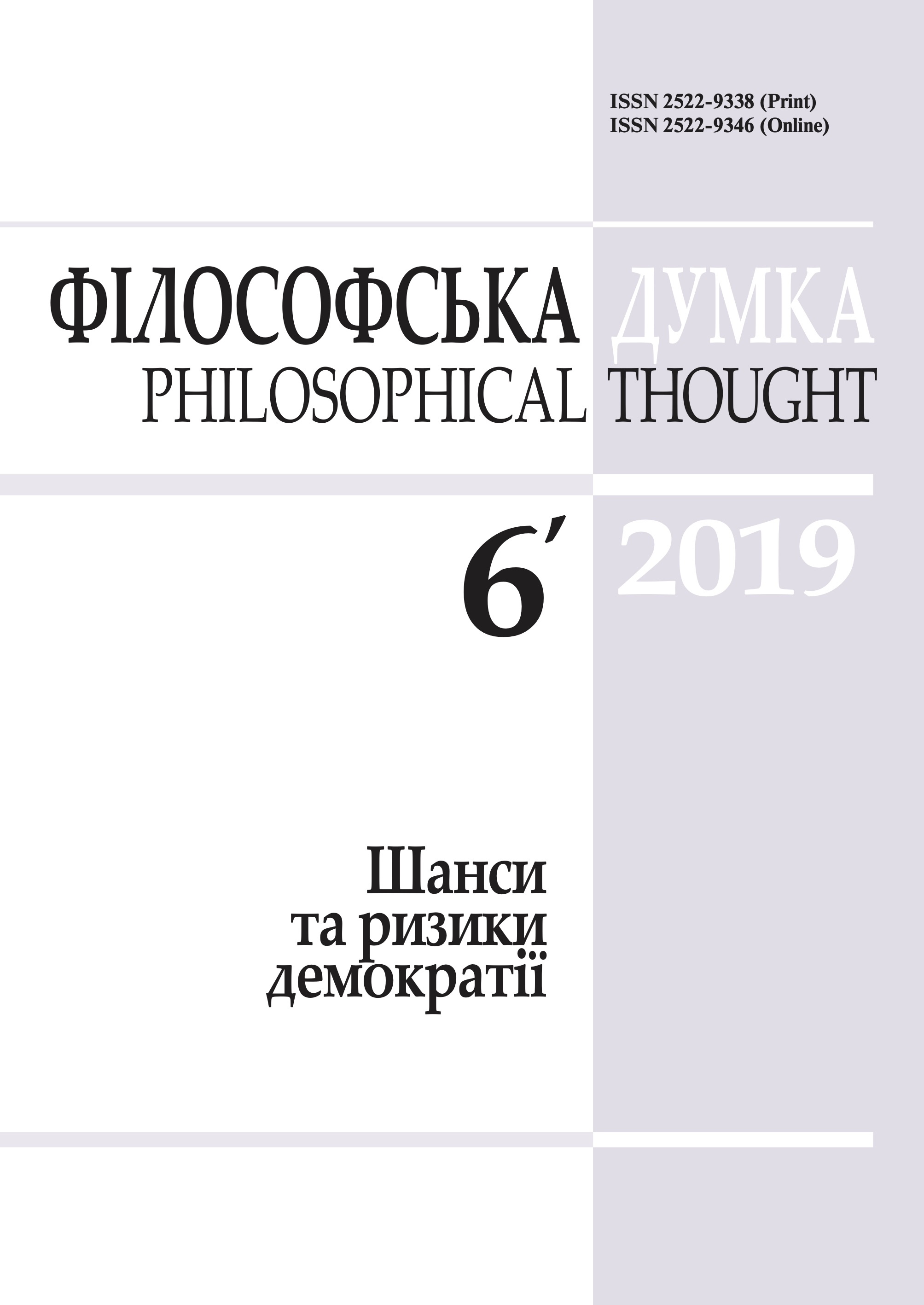Criticism, persuasion, relativism: challenging rationality
ANALYTICAL PHILOSOPHY
DOI:
https://doi.org/10.15407/fd2019.06.096Keywords:
criticism, relativism, persuasion, rationality, WittgensteinAbstract
Criticism in philosophy goes in accordance with general skeptical scientific attitude toward results of a research. The latter are to be achieved, presupposed, given as data and become to be verified or falsified, questioned by critique, analyzing etc. Criticism is improved mean to avoid persuasion and relativism, but (as selected sample versions of philosophical criticism will illustrate, in particular critical legacy of I. Kant, H. Putnam and L. Wittgenstein, especially via resolute interpretation of his views by J. Conant) all three methodological attitudes are mutually correlated, sometimes even viciously. Relativism appears to be less vicious, because it could be treated as performative: relativism is relative. Attention to performativity of relativism can provide for its contextual validity and relativity.
References
Amesbury, R. (2005). Morality and Social Criticism. The Force of Reasons in Discursive Practice. Hampshire: Palgrave Macmillan.
https://doi.org/10.1057/9780230507951
Baghramian, M. (2004). Relativism. London, New York: Routledge.
https://doi.org/10.4324/9780203645895
Conant, J. (2007). Mild Mono-Wittgensteinianism. In: A. Crary (ed.). Wittgenstein and the Moral Life (pp. 31-142.). London: The MIT Press.
Horwich, P. (2012). Wittgenstein's Metaphilosophy. Oxford: Clarendon Press.
https://doi.org/10.1093/acprof:oso/9780199588879.001.0001
Kant, I. (1929 [1787]). Critique of Pure Reason, trans. N. Kemp Smith. London: Macmillan.
Kant, I. (1950 [1783]). Prolegomena to any Future Metaphysics, trans. L. White Beck. Indianapolis: Bobbs-Merrill.
Boer, K. de; Sonderegger, R. (eds.) (2012). Conceptions of Critique in Modern and Contemporary Philosophy. Hampshire: Palgrave Macmillan.
https://doi.org/10.1057/9780230357006
Macarthur, D. (2013). Putnam and the Philosophical Appeal to Common Sense. In: M. Baghramian (ed.), Reading Putnam (pp. 127-139). London, New York: Routledge.
O'Neili, O. (2004). Kant. Rationality as Practical Reason. In: A.R. Mele, P. Eawlong (eds.), The Oxford Handbook on Rationality (pp. 93-109). Oxford: Oxford Univwersity Press.
https://doi.org/10.1093/oxfordhb/9780195145397.003.0006
Putnam, H. (2013). Comments on Richard Boyd. In: M. Baghramian (ed.), Reading Putnam (pp. 95-100). London, New York: Routledge.
Wittgenstein, L. (1922). Tractatus Logico-Philosophicus. London: Routledge, Kegan Paul.
Wittgenstein, L. (1951). Philosophical Investigations. Oxford: Basil Blackwell.
Downloads
-
PDF
Downloads: 408
Published
How to Cite
Issue
Section
License
Authors who publish with this journal agree to the following terms:
- Authors retain copyright and grant the journal right of first publication.
- Authors are able to enter into separate, additional contractual arrangements for the non-exclusive distribution of the journal's published version of the work (e.g., post it to an institutional repository or publish it in a book), with an acknowledgement of its initial publication in this journal.
- Authors are permitted and encouraged to post their work online (e.g., in institutional repositories or on their website) prior to and during the submission process, as it can lead to productive exchanges, as well as earlier and greater citation of published work (See The Effect of Open Access).


